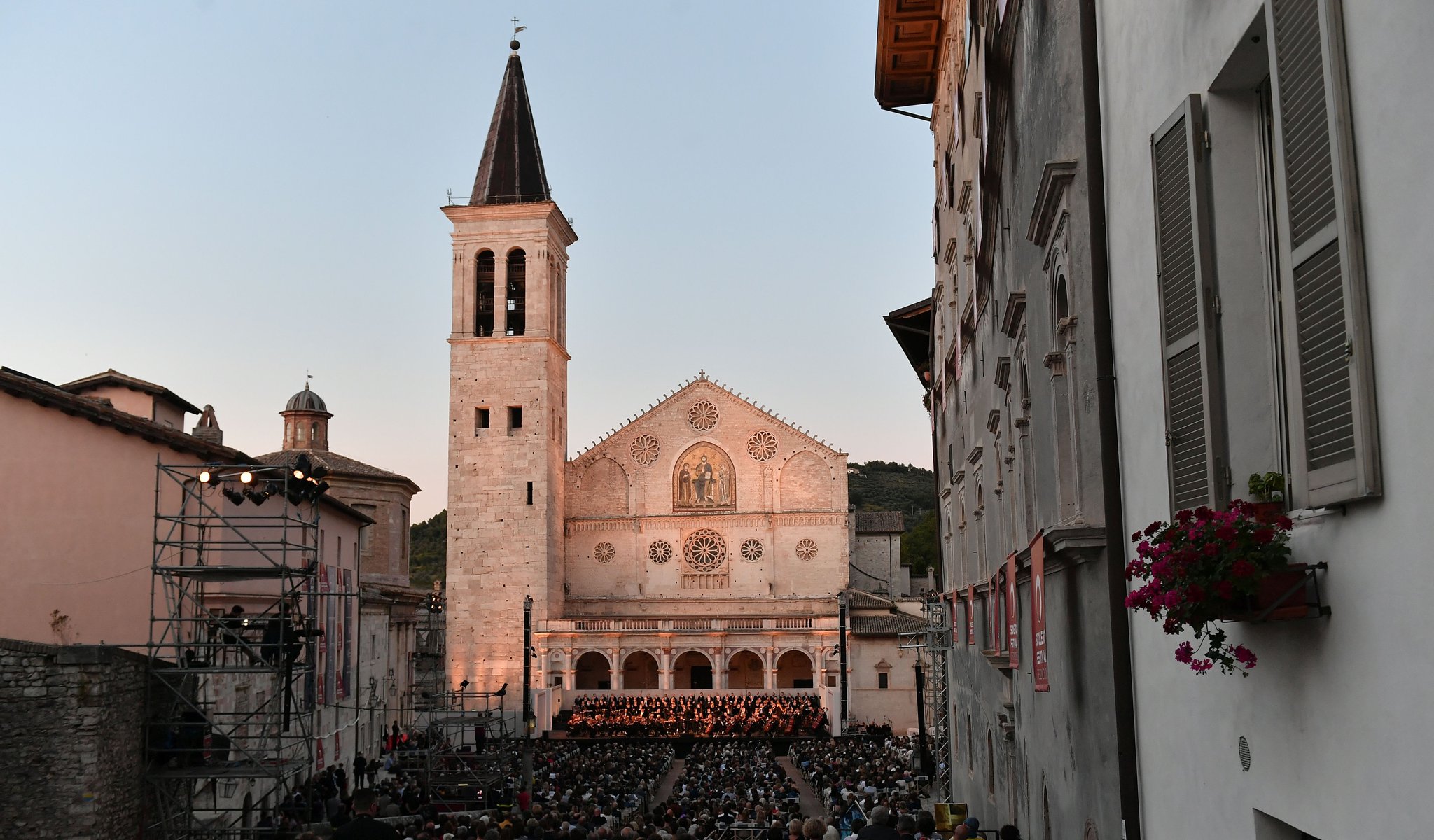
Program
Johann Sebastian Bach (→ bio):
Orchestral Suite No. 4 in D major, BWV 1069
Philip Glass:
The Passion of Ramakrishna
Featuring
Other information
The event is about 1.5 hours long.
About the event
Bach and Glass. Baroque and minimalism. Secular and spiritual. The leap between several centuries and the differences in styles produce seemingly irreconcilable opposites that in fact attract each other. Bach preferred not to venture into genres he considered too casual or lighthearted; but when he did, he made sure for the music to incorporate linkages, systems and depths beneath its surface which would elevate the particular piece to its rightful place in his oeuvre. Something similar lies at the heart of Glass’s music: the composer was able to grasp even the greatest questions in life using minimalist tools. Following Bach’s dance suite, the Budapest Festival Orchestra’s program will feature Glass’s grand oratorio - to be performed in Italy for the first time -, presenting the passion of the 19th century Indian guru Sri Ramakrishna. The Budapest Festival Orchestra was the first ensemble to perform the piece in Europe.
Bach’s last orchestral suite is a perfect opener; the composer called the entire work “Ouverture” with good reason. The first movement invokes the dotted notes and sublime atmosphere of overtures to French operas – with a bit of Italian seasoning. Then, adjusted to the style of the period, come a series of conventional dances; two Bourrées first; the merry and the mysterious dances take turns to form a single movement. A Gavotte, preserving the world of French peasant dances, follows, expressing, according to a contemporary account, “joy that never loses self-control.” After the almost mandatory Minuets (two of them) the Suite, set for strings, oboes, trumpets, timpani, and continuo, instead of adding another dance movement, culminates in a dynamic and ceremonial Réjuissance (rejoicing).
Philip Glass first encountered the text of Sri Ramakrishna’s gospel more than half a century ago. “It was as if the sleeping giant of Indian culture and spirituality - certainly one of the foremost cultures of the ancient world - had been re-awakened and empowered to take its rightful place in modern times,” the composer wrote of the significance of the holy leader. Glass, who had visited India several times and had studied local traditions and culture extensively, completed his oratorio in 2006, paying tribute to the Bengali mystic serving the cult of the goddess Kali around Kolkata. Ramakrishna’s final months were defined by the unbearable pain caused by throat cancer and how he overcame that pain. The music, based on the English translation of the original gospel telling his story, is made up of dialogues. The piece features the yogi’s wife, Sarada Devi (soprano), his disciple M (real-life name: Mahendranath Gupta; bass-baritone) and his physician, Dr. Sarkar (bass); Ramakrishna himself is personified by an entire mixed choir. In the oratorio, Glass uses the orchestral sections as though they were divisions on an organ. His motifs exude the monotonous calm of the East in some places, while reacting in other places sensitively to the text, be it about hurricanes or leaves dancing in a breeze. As one member of the choir at the world premiere of the piece put it, “this is a deeply spiritual piece and one which, I hope, will find its audience in classical music repertoire in the long term.”